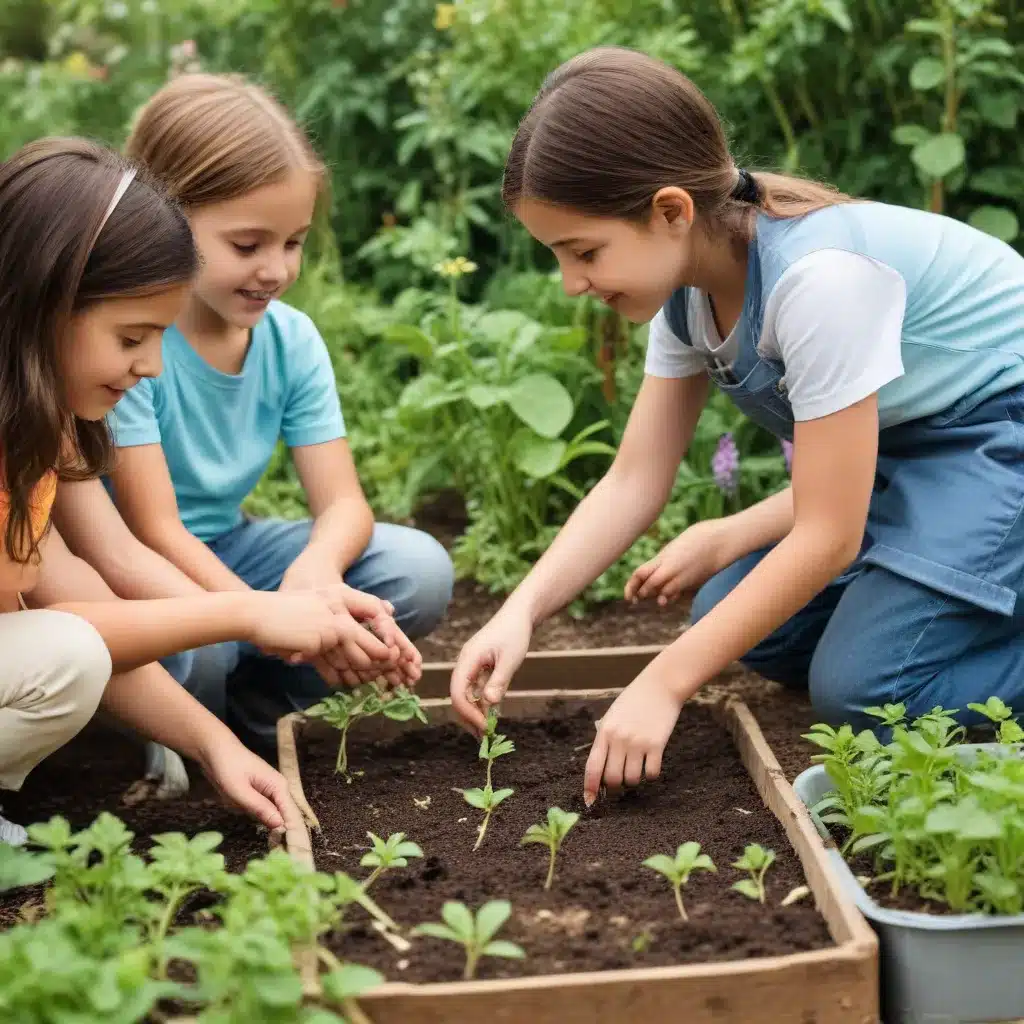
From delicate seedlings to lush, thriving plants, the garden offers a world of wonder and learning opportunities for kids. At Crooked Pines Farm, we believe that getting hands-on with nature is the best way to cultivate young minds and foster a lifelong appreciation for the natural world. By weaving STEM (Science, Technology, Engineering, and Math) concepts into engaging, garden-themed activities, we can ignite a spark of curiosity in every child who steps foot on our farm.
Fundamental Gardening Concepts
Before we dive into the exciting STEM projects, let’s lay the groundwork with some essential gardening knowledge. Understanding the fundamental principles of plant life cycles, soil science, and sustainable gardening practices will empower kids to approach the garden with a more informed, inquisitive mindset.
Plant Life Cycle
The germination, growth, and reproduction of plants captivate young minds. Guide your little learners through the stages of seed development, root establishment, stem and leaf formation, and flowering. Encourage them to observe and document the changes over time, sparking discussions about the environmental factors that influence each phase.
Soil Science
Soil is the foundation of a thriving garden, and unraveling its complexity can be a fascinating STEM adventure. Introduce kids to the various soil components, from organic matter and minerals to water and air. Experiment with different soil types, testing their pH levels, drainage, and nutrient content. Explore the crucial role of decomposers, like earthworms and bacteria, in maintaining soil health.
Sustainable Gardening Practices
Cultivate an appreciation for sustainable gardening by teaching kids about companion planting, mulching, and water conservation. Demonstrate how beneficial pollinators, like bees and butterflies, contribute to a healthy, productive garden. Encourage children to consider the environmental impact of their gardening choices and to adopt eco-friendly practices.
Integrating STEM into Garden-Themed Lessons
Now that the foundational knowledge is in place, let’s dive into the exciting world of STEM-based gardening activities. These hands-on experiences will not only nurture a love for the outdoors but also develop essential critical thinking and problem-solving skills.
Botany and Plant Biology
Engage kids in the study of plant anatomy and physiology. Dissect flowers to uncover the intricate structures of petals, stamens, and pistils. Investigate the transport of water and nutrients through the vascular system of stems and leaves. Experiment with photosynthesis by observing the effects of light, carbon dioxide, and water on plant growth.
Environmental Science and Ecology
Explore the delicate balance of ecosystems within the garden. Observe the food web and the interdependence of producers, consumers, and decomposers. Investigate the impact of environmental factors, such as temperature, rainfall, and sunlight, on plant and animal populations. Encourage kids to design and build composting stations or insect hotels to support biodiversity.
Engineering Design Challenges
Challenge young innovators to apply their engineering skills to garden-related problems. Task them with designing and constructing raised garden beds, irrigation systems, or trellises to support climbing plants. Invite them to brainstorm solutions for maximizing space utilization or pest control in the garden.
Cultivating Curiosity and Critical Thinking
Gardening provides a rich, hands-on environment for fostering essential 21st-century skills, such as observation, inquiry, problem-solving, and interdisciplinary thinking.
Observation and Inquiry-Based Learning
Encourage kids to closely observe the garden, asking questions and formulating hypotheses. Provide them with tools, like magnifying glasses and field guides, to delve deeper into their discoveries. Facilitate discussions that prompt critical thinking and encourage them to seek out answers through further exploration.
Problem-Solving and Decision-Making
Garden-based challenges offer ample opportunities for kids to hone their problem-solving abilities. Present them with real-world scenarios, such as troubleshooting plant diseases or nutrient deficiencies, and guide them through the process of gathering information, generating solutions, and evaluating the outcomes.
Interdisciplinary Connections
Gardening is a versatile platform for integrating diverse subjects. Incorporate math concepts, such as measurement, data collection, and graphing, into garden activities. Explore the language arts by having kids write stories, poems, or research reports inspired by their garden experiences. Nurture their artistic expression through garden-themed nature journaling, sketching, or botanical illustrations.
Fostering Hands-On Exploration
At Crooked Pines Farm, we believe that the best way to learn is by doing. Our garden-themed STEM lessons encourage kids to get their hands dirty and actively engage with the natural world.
Gardening Activities and Experiments
Invite kids to participate in the full cycle of plant growth, from seed sowing to harvesting. Encourage them to track the progress of their plants, recording observations and making predictions. Conduct experiments, such as testing the effects of different watering regimes or nutrient additives on plant development.
Data Collection and Analysis
Equip young scientists with clipboards, rulers, and magnifying glasses to gather valuable data from the garden. Have them measure plant height, leaf size, flower production, and other quantifiable metrics. Teach them to organize their findings, create graphs and charts, and draw meaningful conclusions.
Innovative STEM Projects
Challenge kids to apply their STEM skills in creative, outside-the-box ways. Task them with designing and building self-watering planters, weather stations, or solar-powered irrigation systems. Encourage them to invent pest deterrents or pollinator-attracting features to enhance the garden’s ecosystem.
By immersing kids in the wonder of the garden, we can cultivate a lifelong love of learning and a deep appreciation for the natural world. As they explore the STEM principles woven into these hands-on activities, they’ll develop critical thinking skills, foster a sense of environmental stewardship, and unlock their full potential as the next generation of scientific innovators. So, let’s get planting and watch the seeds of knowledge bloom at Crooked Pines Farm!


